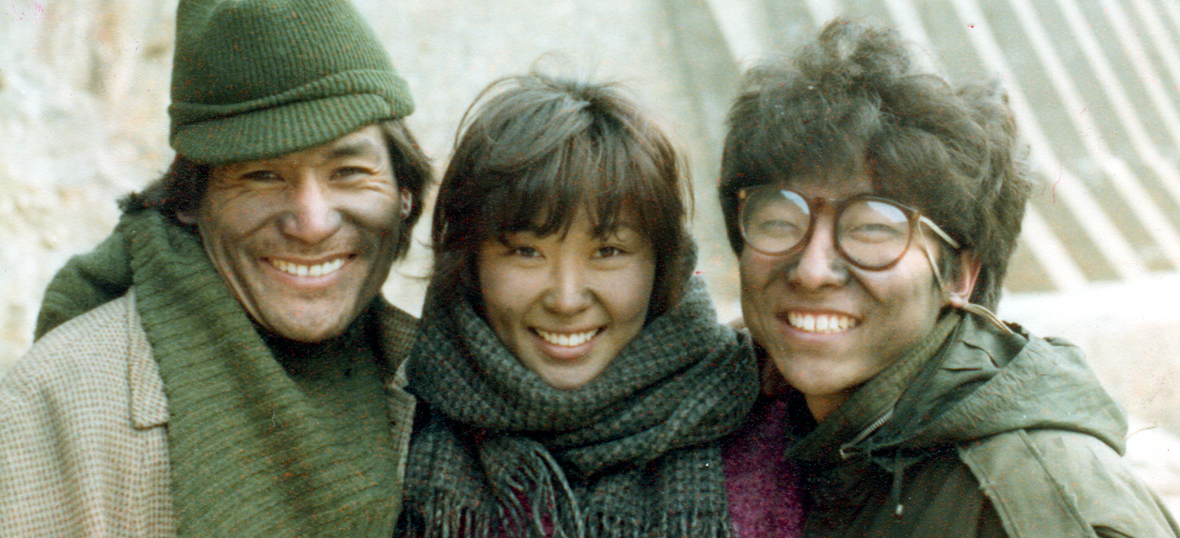
Two men and one woman, nowhere near ordinary in their appearances, cross paths on the road and head to an unknown destination. Sometimes not knowing what they want or where they are headed, they walk the path together. They travel together, sometimes to find a better place and sometimes to find their ideals. Their journey, however, is not easy as thought. Because it is a path taken with strangers, the travelers argue with each other, sometimes to ceasing the partnership and venturing out individually. As they walk on the road, they experience despair in their inability to reach their ideals, but also find new goals in their lives. Day construction worker Yeongdal, a recent ex-con and inmate Mr. Jeong, and a runaway bar girl Baekhwa journey like this together in the film “The Road to Sampo” (Lee Man-hee, 1975), and so do Dongchil, Yukdeok, and Hyejeong in “Declaration of Idiot” (Lee Jang-ho, 1983) as they say goodbye and meet again on their life’s journey. “Whale Hunting” (Bae Chang-ho, 1984), is also similar in that the characters embark on a trip to find the speech and home that Chunja lost.
Along with “The Road to Sampo,” the original Korean road movie, “Declaration of Idiot” and “Whale Hunting” that run parallel with the Korean New Wave Cinema of the 1980s, as well as “Mandara” (Im Kwon-taek, 1981) and “The Man with Three Coffins” (Lee Jang-ho, 1987), are presented in the KMDb VOD Special for September and October. The characters in these films make the audience ask why they began their journey together, what were they feeling on the path they were walking, and what answers await at the end of the long road. In this fall season with fresh breeze that came after months of sweltering heat, what answers will we find in these films?
Films